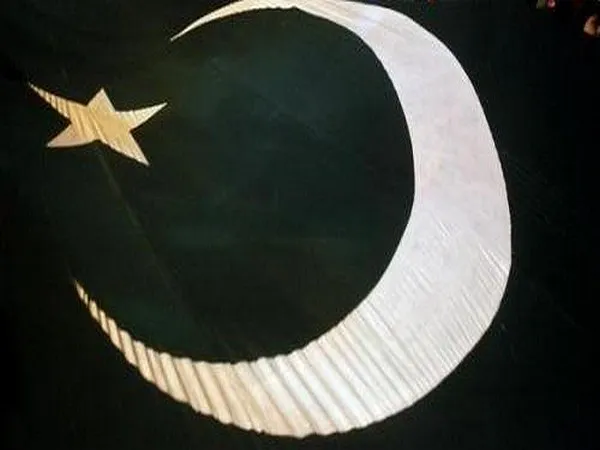It appears that gangs of professional beggars from Pakistan, have expanded their occupation crossing international borders to other countries, pointing to an organised criminal activity.
A few months back the secretary of the Ministry of Overseas Pakistanis and Human Resource Development in a briefing to a Senate standing committee, made the startling disclosure that 90 percent of beggars arrested in foreign countries are Pakistani nationals who had arrived in Saudi Arabia, Iraq and Iran on pilgrim visas. The official also told the Senate panel that while it is bad enough that pilgrim visas should be so misused in such a manner, a significant number of pickpockets arrested from such a sacred place as Masjid-e-Haram were found to be predominantly Pakistanis.
Secretary Overseas Pakistanis Zulfikar Haider disclosed startling details about the extent of the problem and its impact on the reputation of overseas Pakistanis. Venting his frustration over the lack of action taken to address this escalating issue Haider said, “Beggars are leaving Pakistan en masse, often travelling by boatloads, and then exploiting Umrah and ‘visit visas’ to beg from pilgrims abroad.” He went on to express his deep concern that prisons in Iraq and Saudi Arabia are now housing a significant number of Pakistani beggars, further tarnishing the image of Pakistanis abroad. The Secretary lamented that Pakistanis are increasingly viewed with suspicion abroad, leading to a rising number of deportations. “Iraq and Saudi Arabia continuously complain that we are sending criminals to their countries, and their jails are overcrowded with Pakistani beggars. This is a serious issue of human trafficking.”
As if providing proof of this organised crime activity and breach of trust with Middle Eastern countries, just days after the Senate briefing, Pakistan’s Federal Investigation Agency (FIA) offloaded eight people from a Saudi-bound flight at the Multan airport. According to a statement issued by the relevant FIA official, it transpired during the immigration process that the group was travelling to the holy land for the purpose of begging.They told investigators that a man who had charged them Rs 185,000 got their visas processed, and that upon reaching the destination they were to hand over half of the solicited money to a sub-agent. They were to return to Pakistan after the expiry of their Umrah visas.
A couple of days later, at the same airport, FIA stopped another group of 16 people, including women and children, headed to Saudi Arabia in the guise of Umrah pilgrims.
Indeed the number of Pakistani prisoners in foreign jails has been constantly increasing with the passage of time. A total of 12,080 Pakistanis are presently in jails, out of which 3,100 each are in Saudi Arabia and the UAE. The data provided to the National Assembly Secretariat by the Ministry of Foreign Affairs earlier shows that out of 3,100 Pakistanis in the UAE jails 1,612 are in Abu Dhabi and 1,488 in Dubai. In Saudi Arabia, 1,596 Pakistanis are in jails in Riyadh whereas another 1,504 are presently detained in Jeddah.
In fact Saudi Arabia has raised concerns with Islamabad as a majority of people who travel to the Kingdom are involved in either begging or pickpocketing. Saudi Arabia told the Pakistani officials that the majority of the pickpockets arrested from within Makkah’s grand mosque are Pakistani nationals.
In January this year, a parliamentary committee expressed grave concern over the growing trend amongst Pakistanis resorting to begging in Saudi Arabia after going there for Umrah.
Driving this scandalous activity, of course, is pervasive poverty, making it easy for criminal elements to prey on the vulnerabilities of the poor and destitute. According to the World Bank, as of 2023, nearly 40pc of Pakistan’s population has fallen below the poverty line.
Scores of beggars converge at popular spots across all major Pakistani cities, creating a nuisance for commuters and shoppers, who find it difficult to navigate through. Toddlers can also be seen begging and sleeping at traffic signals on main roads even past midnight.
With the arrival of Ramazan, during which charity activities witness a significant increase, the number of beggars has also increased as apart from locals, families from different parts of the country arrive in big cities on what many called a begging trip. And just as beggars from various parts of Pakistan reach the big cities like Kranchi, Rawalpindi and Lahore, more experienced beggars take their begging bowls to foreign soils. Pakistani society’s negligence has led to the situation where ‘local’ beggars are finding opportunities to go ‘global’.
Beggars have become such a nuisance that many citizens have started a boycott of such professional beggars as they believe they are actually harming those people who really deserve their charity in such a tough time. A campaign on social media by a Facebook page named Ek Aam Karachi Wala under the hashtag #BheekBand, asking people not to give alms to professional beggars is becoming popular.
Unfortunately, it figures nowhere in Pakistan’s policy planners’ priorities. Pakistan has no proper checks in place for those exiting the country and creating opportunities for respectful employment at home is the least of the concerns. Can the nations’ law enforcement dismantle the network of Pakistani beggers abroad ? Unlikely.

